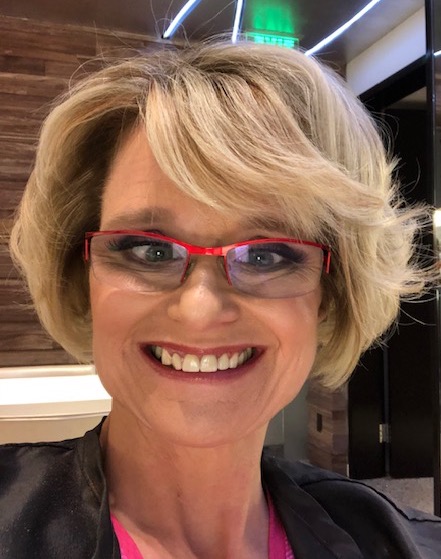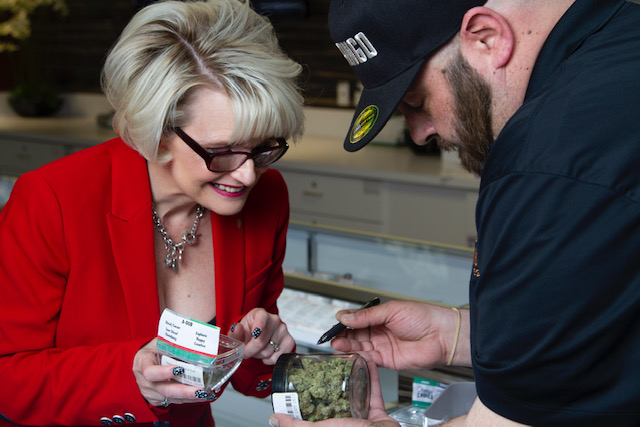Nikki Lawley, Buffalo, New York
It was just a routine vaccination. As a pediatric nurse, Nikki Lawley had done more than she could count, including with kids like this one, who really didn’t want the shot. But the child turned combative and suddenly headbutted her, snapping her head back against the wall. She didn’t realize it immediately, but the double impact and whiplash would change her life.

She’d just sustained a serious traumatic brain injury and now had cervical instability. Headaches, memory loss, insomnia, mood disturbance, anxiety and depression took control of her life.
Even though she was a medical professional, getting a diagnosis and appropriate care was a battle. She was no longer a nurse; she was a woman with invisible injuries facing off with a series of skeptical physicians. Because the injury occurred on the job, she was also caught between New York state’s workers’ compensation and her private insurance company. Her insurance wouldn’t pay for anything to do with it, and workers’ comp had many restrictions on what it would cover. She cycled through more than 50 different medications, many with side effects more serious than the symptoms of her injury. But workers’ comp refused to pay for any alternative treatments, forcing Nikki to tap into her life savings.
Within three short months, Nikki was at her wits’ end. The side effects of the medications were excruciating, the battles with medical professionals were exhausting and humiliating, and the loss of her sense of self and her ability to work left her with no purpose in life.
“I was suicidal,” she says.
Her struggle was obvious to those who cared about her. In an attempt to lift her spirits, her husband booked the two of them a trip to a favorite place: Las Vegas.
She was in no real shape to travel, but couldn’t say no to a loving gesture. Once they got to the hotel, she couldn’t leave the room. After trying and failing to convince her to try doing something fun, her husband went for a walk, and Nikki found herself on the balcony, seven stories up, frightened but making a plan to end it. As she looked down at the street below, a billboard truck rolled by that said “Get your Nevada medical marijuana card here today.”
In nursing school, Nikki had learned nothing about the endocannabinoid system or cannabis, and like many medical professionals did not consider cannabis to be medicine. Having exhausted every pharmaceutical treatment possible and every alternative treatment she could find and afford, she was out of options. The billboard truck rolled by again. Nikki made a decision.
She got her Nevada card and went to a dispensary.
“The budtender was a young guy who was really caring and took the time to talk to me about all the options – lozenges, tinctures, everything,” Nikki says. “I tried them all, but only smoked indica-dominant flower helped.”
Cannabis got Nikki off the ledge – figuratively and literally – but when she got back to New York from Las Vegas, she discovered she was not allowed access to the type of medicine that helped her.
“In 2017, New York did not allow smokeable cannabis and capped the amount of THC,” Nikki recalls. “And chronic pain wasn’t on the list of qualifying conditions.”
The limits on New York’s medical cannabis program forced Nikki to travel regularly from Buffalo, NY to stay with friends in Ontario, Canada, where she could get legal access to the types of cannabis medicine that alleviate her pain and TBI symptoms. The pandemic restrictions stopped her ability to travel, forcing her to consider moving to somewhere with less restrictive rules. Last week, New York finally made smokeable flower legal for patients in the state, thanks to the tireless efforts of activists such as Nikki who worked for years to educate lawmakers and the public.
“I am excited to see the medical program expansion include smokable whole plant medicine!” Nikki says. “The consumption piece means I won’t live in fear about where I can consume my medicine, but the biggest win, I believe, is the way the law addresses social equity and justice!”
Nikki may have not planned on being an activist, but since she realized the need to come out of the shadows and tell her story, she’s embraced the role wholeheartedly. She contributes regularly to several online support groups for others with head injuries as well as medical cannabis groups. She’s an active member of ASA, and has been the subject of more than two dozen news articles, podcasts, and blogs, where she tells her story fearlessly so that others may draw strength and inspiration from it. Many of those stories and interviews can be found at https://linktr.ee/Nikkilawley.
“Becoming an advocate for cannabis was never what I imagined,” Nikki says. “But by telling my story I have more impact now than I had as a nurse.
This profile was originally published in the April 2021 ASA Activist Newsletter
Share this page





















